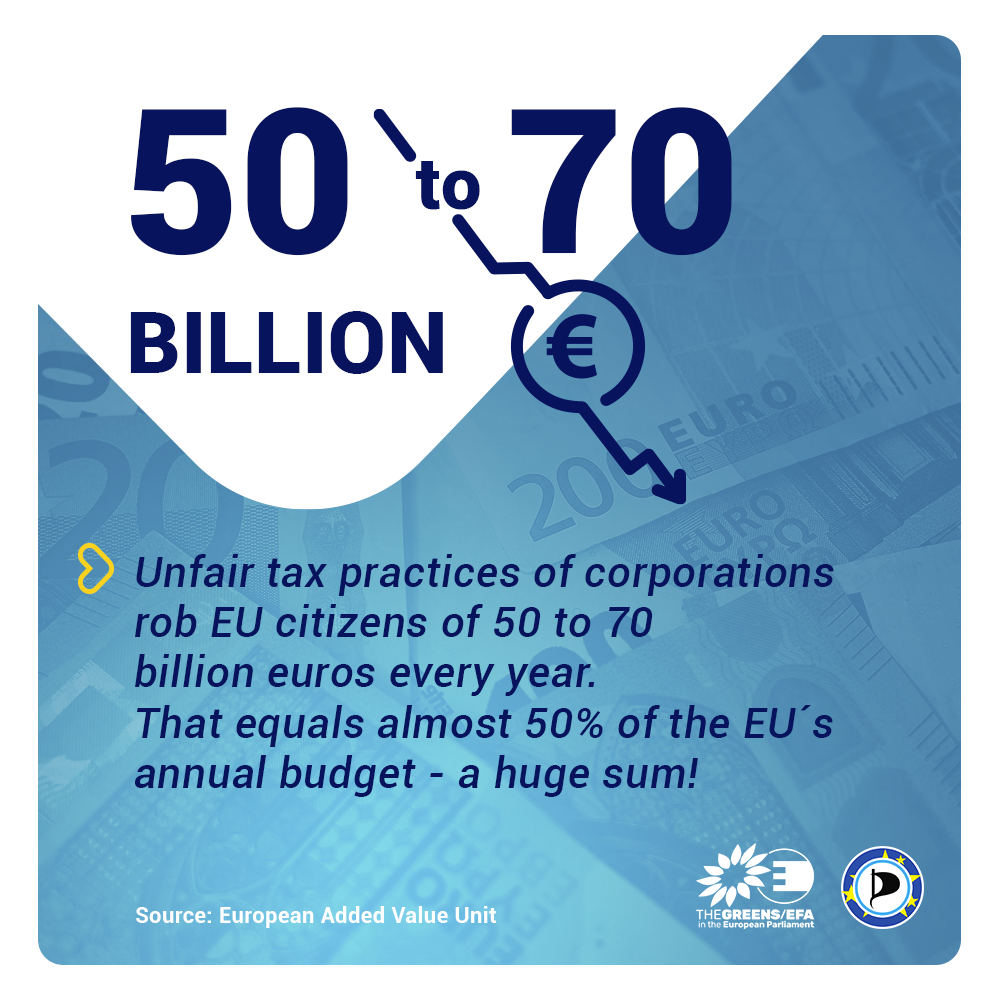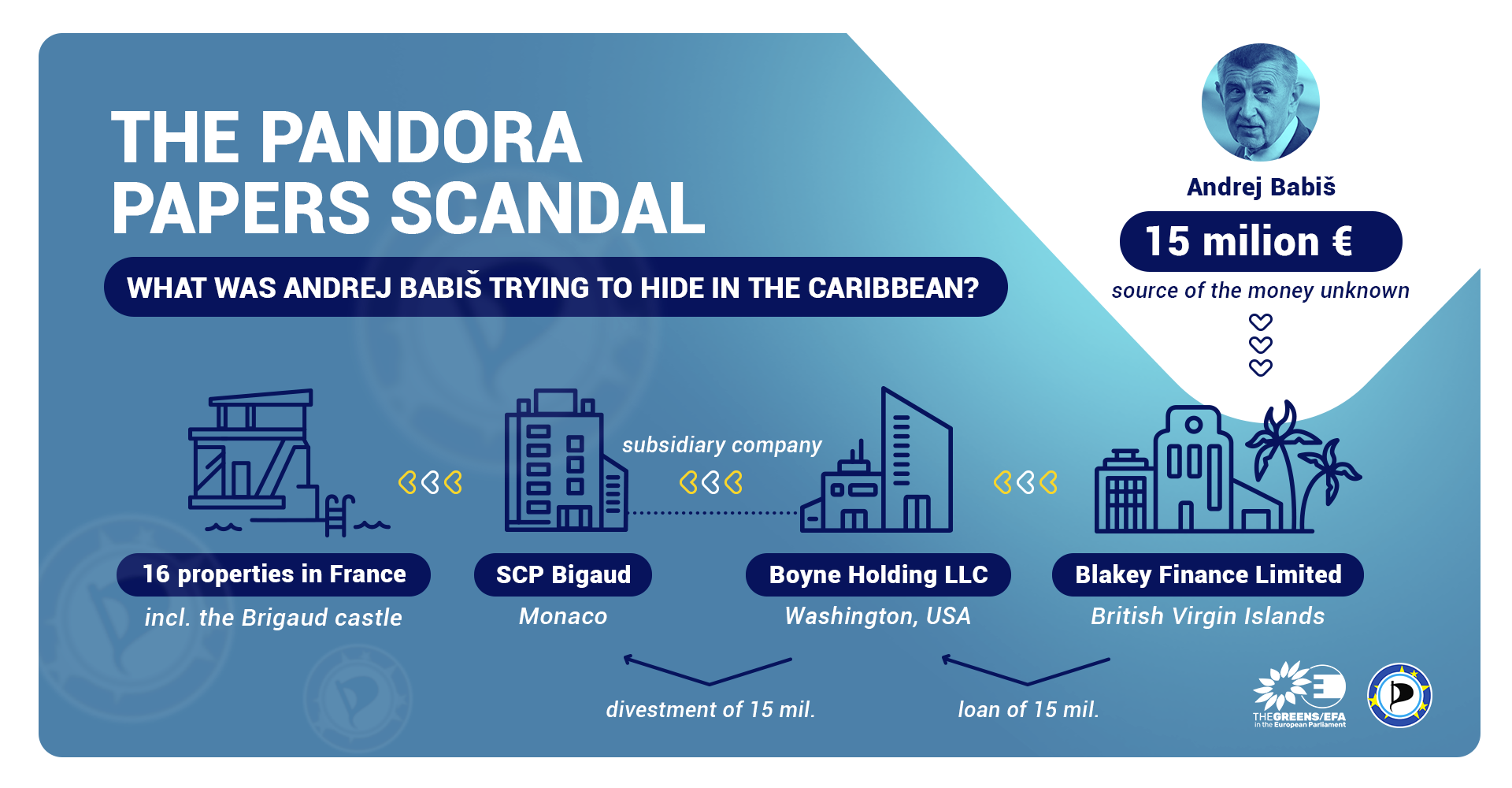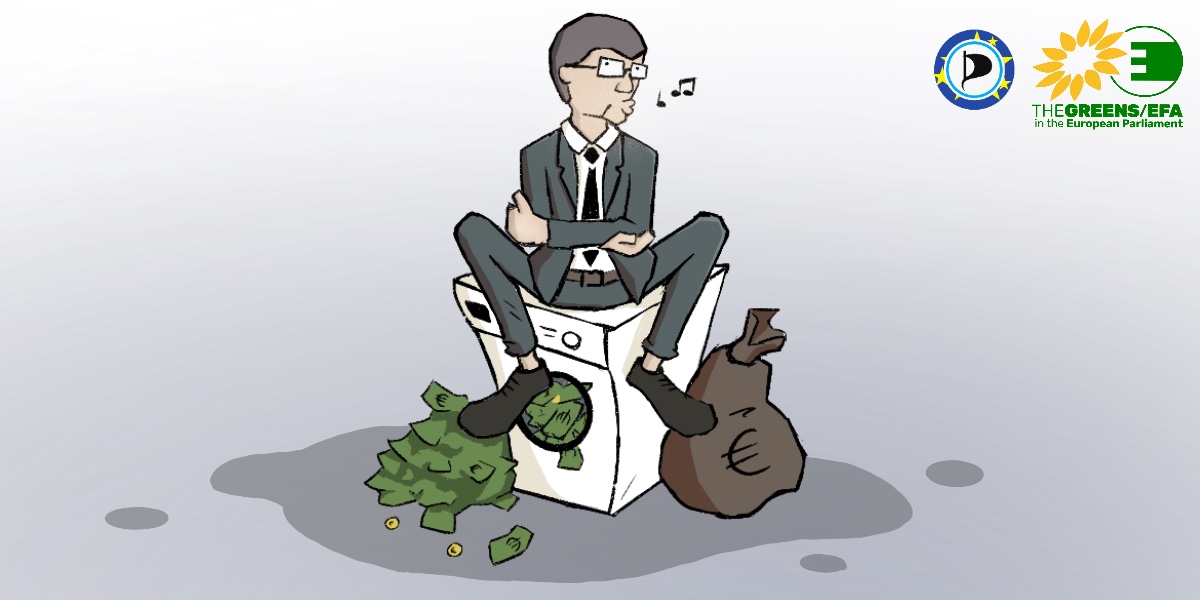Mikuláš Peksa:
When I was trying to ensure greater transparency of tax haven corporations in the European Parliament and outside of it (www.spravedlivedane.cz), I was somewhat surprised by the lukewarm reaction of Mr Babiš’s government and his allegedly anti-corruption ANO movement. I am surprised no longer.
Andrej Babiš is at the heart of the money laundering and tax evasion mega-scandal Pandora Papers. That makes him part of a “prestigious” club, which includes Vladimir Putin, Volodymyr Zelenskyy, and Tony Blair. Let’s take a closer look at what it is all about.
What we know: The documentation of the Panama law firm Alcogal shows that Babiš secretly sent almost 400 million CZK to himself from the Czech Republic to the notorious tax haven of the British Virgin Islands. He then founded a shell company in Washington and loaned the money to it through the first company. On paper, these two firms were not connected at all, despite being owned by the same person. The Washington company then established a subsidiary in France, which bought 16 luxury properties, including the Château Bigaud castle in Southern France. Babiš’s American company also later borrowed 8 million euros from the Monaco branch of Société Générale, which allowed it to conceal the origin of the money it used to make these purchases. You can see the entire scheme in the chart.

Why did he do it? There are several possibilities. One: that the almost 400 million CZK came from illegal sources and Babiš wanted to “launder” it this way – make it legal. Experts approached by the @Investigace.cz server stated that the transaction “shows signs of money laundering” and “no normal business transaction would ever look like this.”
Alternatively, which seems more likely, Babiš simply wanted to avoid paying taxes. The knotted thread of companies ends in tax havens and theoretically allows Babiš to avoid taxation on any income he draws from his chateau – including the income from a potential sale. In practice, this would mean the French company would “erase” all of its profits by paying interest to the company on the British Virgin Islands (this mechanism is known as intra-company loans). The French company will then pay no income tax (because its income will equal zero), and the tax haven company will do the same (because while it will generate income, the tax rate will once again be zero). However, this is relatively complicated in reality because the income in France would have to be precisely the same as the agreed-upon interest rate. Yet, it is not impossible.
There is another possible way: The neovlivni.cz server found that this structure might allow Babiš to lower his property tax and wealth tax in France. This would mean undeniable tax fraud in France and the start of a real pickle for Babiš. France has shown it has no problem convicting former top politicians.
In any case, the only person who can explain the scandal is Andrej Babiš himself. Mr Babiš owes us all answers to these questions:
- Why did he use tax havens to buy his properties instead of buying them directly?
- Where did he get the 400 million CZK to make the purchase? Was it legal and taxed income?
- Mr Babiš claims that “the entity got credit and paid back the money to me” (here, 9:30). Who did he loan the money to, and does it mean he does not own the properties after all? How can he both get the money back and own the properties at the same time?
Mr Babiš simply needs to show his hand. As Prime Minister he was responsible for playing fair himself. He therefore must answer these questions without fail.

Can we trust that Mr Babiš will combat tax havens?
These findings are all the more alarming considering Mr Babiš’s government claimed to be fighting against tax havens and tax evasion. What is even more intriguing is that Mr Babiš could also be investigated not only in Czechia but also in France and the USA, where his secret companies have their residences. It is difficult to imagine what people would say to Mr Babiš making state visits to these countries, not to mention what this will do to his trustworthiness and ability to command respect in the eyes of other global leaders.
The Pandora Papers findings also cast shadows on previous steps by Mr Babiš’s government. To cite one example that says it all: When discussing the public register of beneficial owners of companies in 2016, Mr Babiš, then Minister of Finance, tried to make sure information on company owners would not be publicly accessible. The current Prime Minister even wrote, in a letter to David Ondráček, the head of Transparency International, that “based on his experience, he has major doubts over whether the register could be used meaningfully and be of benefit.” (https://www.transparency.cz/wp-content/uploads/MF-31526-2016-2401-3_KzM%C3%9A1.pdf) If we realize that at that time, Mr Babiš did not have a clean slate by far in terms of his relationship to tax havens, according to the investigation by global journalists, his attitudes should be a cause for concern.
Mr Babiš has already naturally tried to dismiss all of this as politicking before the elections. However, that is nonsense: the revelations were brought by the long-term collaboration of journalists from big-name media such as the BBC, the Guardian, Le Monde, or Washington Post.
This is simply no “campaign” or “sham”, nor can it be. What it is instead is a reveal of the real Andrej Babiš. He is right when he says that he will fight to the last drop of blood. Yet what he fails to mention is that he will only fight for himself.


0 comments on “Pandora Papers: Andrej Babiš owes us answers (and maybe also money)”